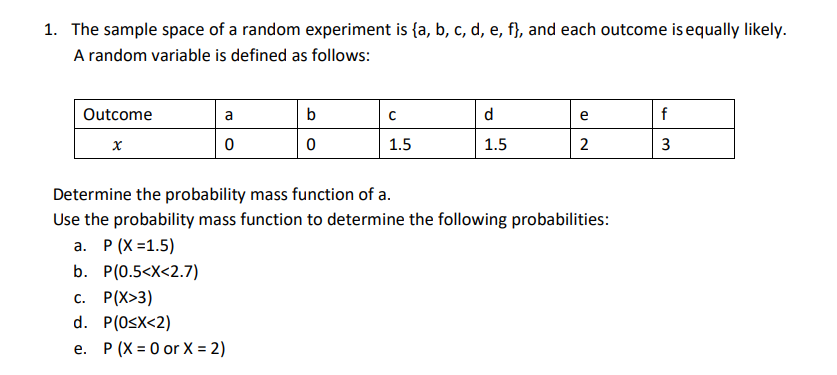Home /
Expert Answers /
Statistics and Probability /
1-the-sample-space-of-a-random-experiment-is-a-b-c-d-e-f-and-each-outcome-is-equa-pa894
(Solved): 1. The sample space of a random experiment is \( \{a, b, c, d, e, f\} \), and each outcome is equa ...
1. The sample space of a random experiment is \( \{a, b, c, d, e, f\} \), and each outcome is equally likely. A random variable is defined as follows: Determine the probability mass function of a. Use the probability mass function to determine the following probabilities: a. \( P(X=1.5) \) b. \( P(0.53) \) d. \( P(0 \leq X<2) \) e. \( P(X=0 \) or \( X=2) \)
Expert Answer
Sample has a random experiment = {a,b,c,d,e} each outcome is equally likely, p(a)=p(b)=
